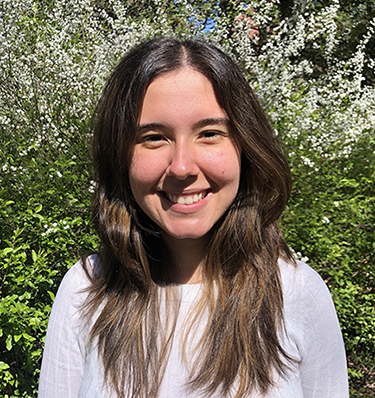 Meet Selma Sabra, a junior Psychology major with a minor in Chemistry. She works on the Classroom Memory Study at the Frank Porter Graham Child Development Institute with faculty mentors Dr. Peter Ornstein and Dr. Jennifer Coffman. The Classroom Memory study is a longitudinal investigation of children’s memory and academic outcomes in kindergarten, first grad, and second grade.
Meet Selma Sabra, a junior Psychology major with a minor in Chemistry. She works on the Classroom Memory Study at the Frank Porter Graham Child Development Institute with faculty mentors Dr. Peter Ornstein and Dr. Jennifer Coffman. The Classroom Memory study is a longitudinal investigation of children’s memory and academic outcomes in kindergarten, first grad, and second grade.
Tell us about your research. The Classroom Memory Study explores how different factors from children’s environment affect their development of cognitive and academic skills. The main focus is on teachers’ use of Cognitive Processing Language (CPL), and the research also explores parents’ communicative language, children’s basic skills, and teachers’ beliefs about instruction. My main role in the lab is to administer tasks that assess children’s cognitive skills and academic achievement.
What encouraged you to get involved in research? Since I declared my Psychology major during freshman year, I looked at the opportunities available. I knew that research opportunities in the major existed as PSYC 395 credit, and I knew I wanted to be a part of that. Through the psychology email listserv, I heard about the opportunity to work with the Classroom Memory Study during my sophomore year, and I knew that was the research experience I had been waiting for. Conducting cognitive assessments with children every week matched my interests of participating in more hands-on, applied research data collection, while also allowing me to learn more about the child development field. And so, I applied, interviewed, and got in!
What do you like most about your work? My favorite aspect is the culture of inclusivity and support at the lab. My faculty mentors not only give us literature-specific guidance so that we are knowledgeable about the work we are doing, but they also help us with professional development and support us in our undergraduate journeys. My two direct graduate student mentors also meet with us weekly and make sure we do not have any doubts about what we should be doing and help us with any struggles we find along the way. I love the work that I do at the lab, especially when I get to interact with kids through Zoom and carry out assessments with them. I have to say, though, that the community that I get to do it with makes it all the better.
What do you want to do as a career? My greatest desire is to become a doctor and to help make treatment more accessible for populations in need. In terms of specialty, I will likely be working with kids. This research experience has only made me more interested in early development and children’s cognitive skills. It also gave me a whole new perspective on research, and I know now that I want to incorporate it into my career path. Hopefully, I will be able to work towards these goals, and I strongly believe that participating in this experience has brought me closer to achieving them.
How has the COVID-19 pandemic has affected your research? When I joined the lab, the University had already moved to remote learning. Thankfully, my lab was still able to take in students and they prepared us well. The cognitive tasks I was taught had already been adapted to an online format, and the assessments I carry out with the children in the study are also done virtually.
Our Undergraduate Research Series features spotlights on our Psychology and Neuroscience majors and minors who are conducting undergraduate research with our faculty! We believe strongly that undergraduate experiences are greatly enriched by inquiry and discovery through undergraduate research. Research experiences allow students to better understand literature, determine areas of interest, discover their passion for research, continue on to graduate studies, and to jump start their careers as researchers. If you are an undergraduate who is interested in pursuing research experiences, we offer PSYC and NSCI 395 as an opportunity to work side-by-side with graduate students and faculty members on cutting-edge psychological and neuroscience research. We also recommend you visit the Office for Undergraduate Research to find research opportunities, apply for research funding, and for helpful tools and advice. Research opportunities abound at UNC – find one that works for you!

